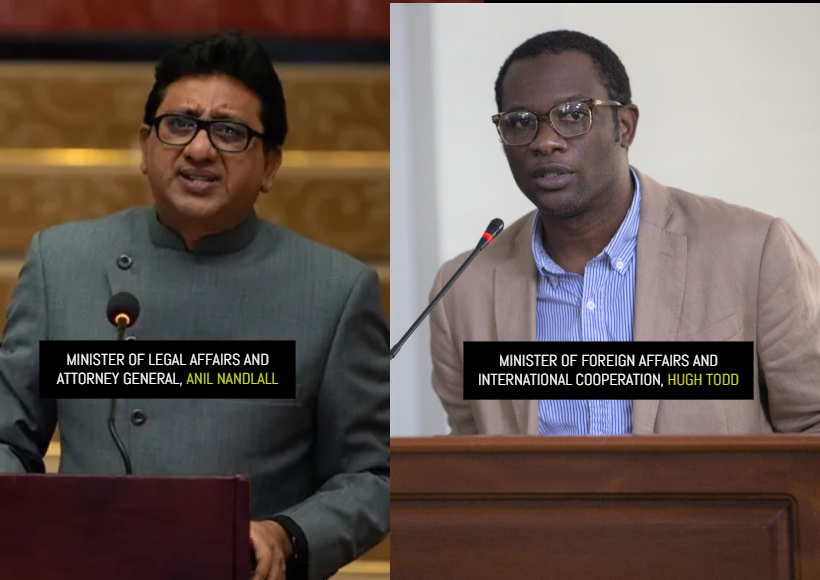The National Assembly green-lighted a legislative amendment to the Anti-Money Laundering and Countering the Financing of Terrorism Act of 2009 on Friday morning. The bill is designed to refine the existing Act and align it more closely with the internationally recognized standards set by the Financial Action Task Force (FATF). It aims to strengthen law enforcement’s capacities in countering money laundering, along with terrorism and proliferation financing.
The FATF defines “proliferation” as unlawful activities linked to the creation, acquisition, transportation, and use of nuclear, chemical, or biological weapons and their delivery systems.
Attorney General and Minister of Legal Affairs, Mohabir Anil Nandlall, SC, presenting the Anti-Money Laundering and Countering the Financing of Terrorism (Amendment) Bill, stressed that the original Act demands regular updates to accommodate the FATF’s recommendations, which are based on an evolving understanding of global trends in AML/CFT and terrorist financing. “These directions and these recommendations are conceived and crafted based upon expert and examination of international trends in the area of AML/CFT and terrorist financing…,” Nandlall stated.
Friday’s parliamentary activities also saw the passage of the Guyana Compliance Commission Bill of 2023. This legislation ensures the necessary oversight for non-financial businesses or professions and non-bank financial institutions, facilitating their adherence to the Anti-Money Laundering and Countering the Financing of Terrorism Act.
The newly formed non-governmental organization will amplify efforts on compliance, training, and guidance concerning money laundering, terrorism financing, and proliferation financing within Guyana, bolstering both local and international cooperation.
Minister Nandlall also underscored the bill’s centrality to Guyana’s imminent FATF assessment, referring to the outcome of two national risk assessments in 2017 and 2021, both indicating inadequate AML/CFT oversight for certain financial entities. “So, that was a hole in our AMLCFT architecture; that we don’t have a sufficient number of supervisory authorities to regulate various areas of activities in our financial sector,” Nandlall added.
With FATF recommendations in mind, the creation of a supervisory authority for these entities is a crucial step towards fortifying the AML/CFT framework.
Hugh Todd, Minister of Foreign Affairs and International Cooperation, lent his support to the bill. “What we are achieving here this evening is to ensure that Guyana is compliant… This approach to regulation is certainly commendable, and demonstrates a commitment of the government to support the private sector while preserving the integrity of its financial markets and honouring our country’s international obligations,” he stated.
In closing, Minister Nandlall underlined the unique importance of the AML/CFT laws in the country’s governance. “The AML/CFT set of laws are what can be described as sui generis (unique)… These laws were not originated in Guyana or the Caribbean. This is the international, best practiced, acceptable standard that the world is governed by if you want to be part of the civilised league of nations,” he concluded.













